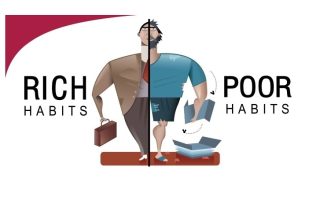
A low-carbohydrate diet can help certain diabetes sufferers control their insulin levels, according to a study published by the American Academy of Pediatrics.
This finding was only for type 1 diabetes patients who had been diagnosed between the ages of 14 and 16 years of age.
Type 1 diabetes patients don’t produce insulin like they should. Those with type 2, on the other hand, don’t respond to insulin like they should.
Blood Sugar Levels
Both can lead to high blood sugar levels and other complications often associated with diabetes.
If diabetes isn’t controlled, it can cause frequent urination and thirst, constant hunger, fatigue, blurry vision, and trouble healing.
For the most part, patients with diabetes manage their blood sugar levels with daily and insulin shots.
Type 1 Diabetes Is Hereditary
Because type 1 diabetes is usually hereditary, it had been difficult to find anything outside of daily insulin shots for people with the condition — until now.
This discovery was based on studying more than 300 individuals with type 1 diabetes who followed a very low-carb diet for two to four years.
The researchers found that patients who adhered to a very low-carb diet didn’t need to take as much insulin supplementation throughout the day than they otherwise would have required.
Blood Sugar Levels
A normal blood sugar level is 5.7%. For diabetic patients, it is normally around 6.5%. Researchers found that those who maintained a very low-carb diet, however, maintained an average blood sugar level of 5.67% and didn’t need insulin as often.
Notice the placement of the word “very.” A typical low-carb diet would be anything less than 130 grams of carbs in one day. To be considered a very low-carb diet, you would take in less than 30 grams of carbs in a day.
The ability to manage blood sugar levels through diet has the potential to save a lot of money: the more than 29 million people in the U.S. who have diabetes cost the economy nearly $327 billion annually.
Potential Risks
As with any diet, you’ll want to contact your doctor before cutting yourself down to less than 30 grams of carbs per day.
Changing your diet that drastically can cause nutrient deficiencies and result in such symptoms such as fatigue, headache and confusion.
No matter what potential risks there may be, switching to a low-carb or very low-carb diet could help a number of people relieve health issues.
For many people, simply cutting out sugary drinks and pasta is enough to make a difference.
Readers, what’s your current diet like — and have you thought about lowering your intake of carbohydrates?
If you enjoy reading our blog posts and would like to try your hand at blogging, we have good news for you; you can do exactly that on Saving Advice. Just click here to get started.
Read More
- Vegetarian Diet Proven as Effective as Mediterranean Diet
- Can the DASH Diet Cut the Risk of Depression?
- How Much Should Your Diet Plan Cost?
- Cheap Paleo Diet Plan and Recipes
- Diet Bet: Lose Weight and Save Money in the New Year
- Healthy Ramen Recipes You Can Start Making Today

Amanda Blankenship is the Chief Editor for District Media. With a BA in journalism from Wingate University, she frequently writes for a handful of websites and loves to share her own personal finance story with others. When she isn’t typing away at her desk, she enjoys spending time with her daughter, son, husband, and dog. During her free time, you’re likely to find her with her nose in a book, hiking, or playing RPG video games.






Comments